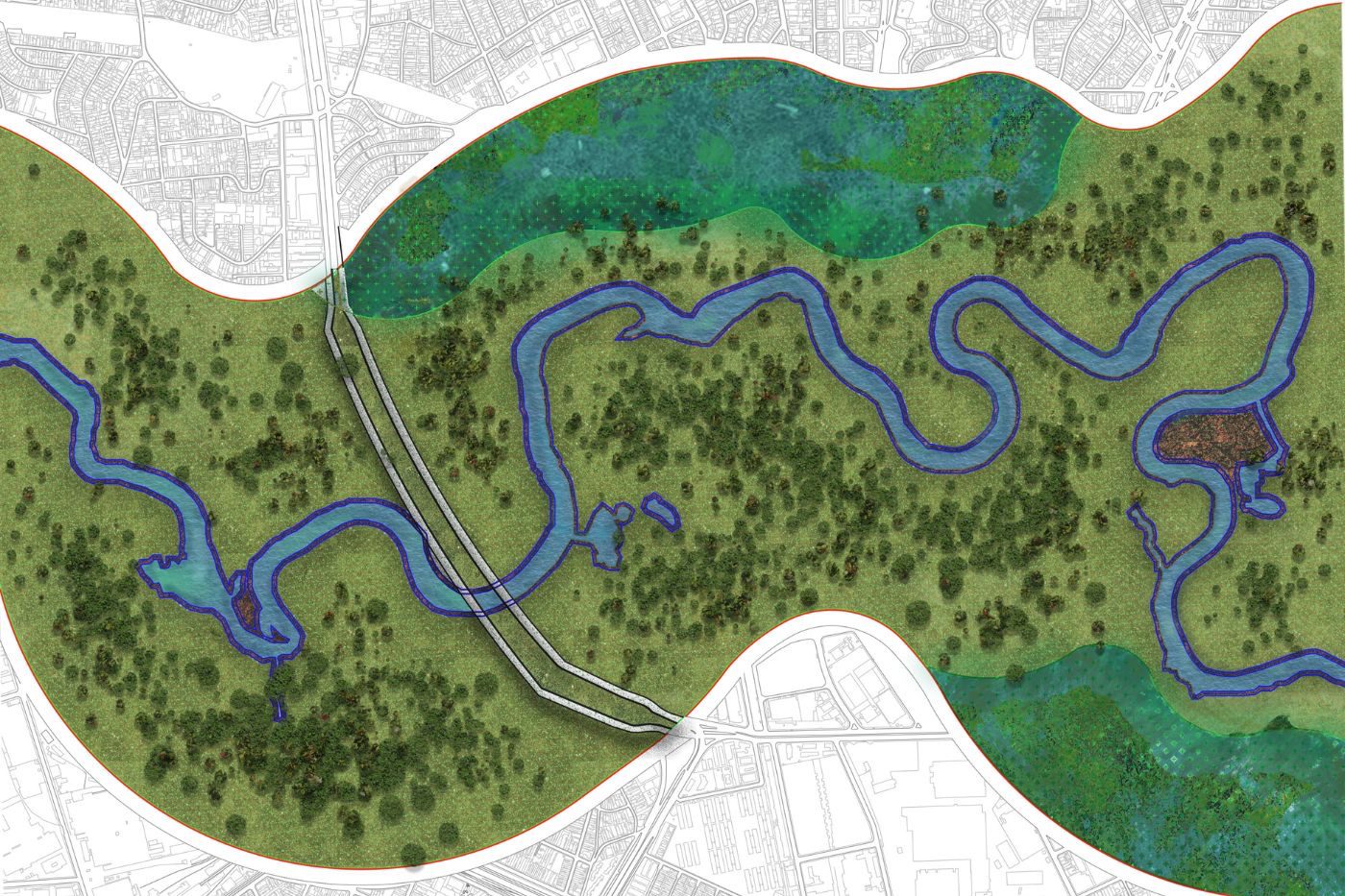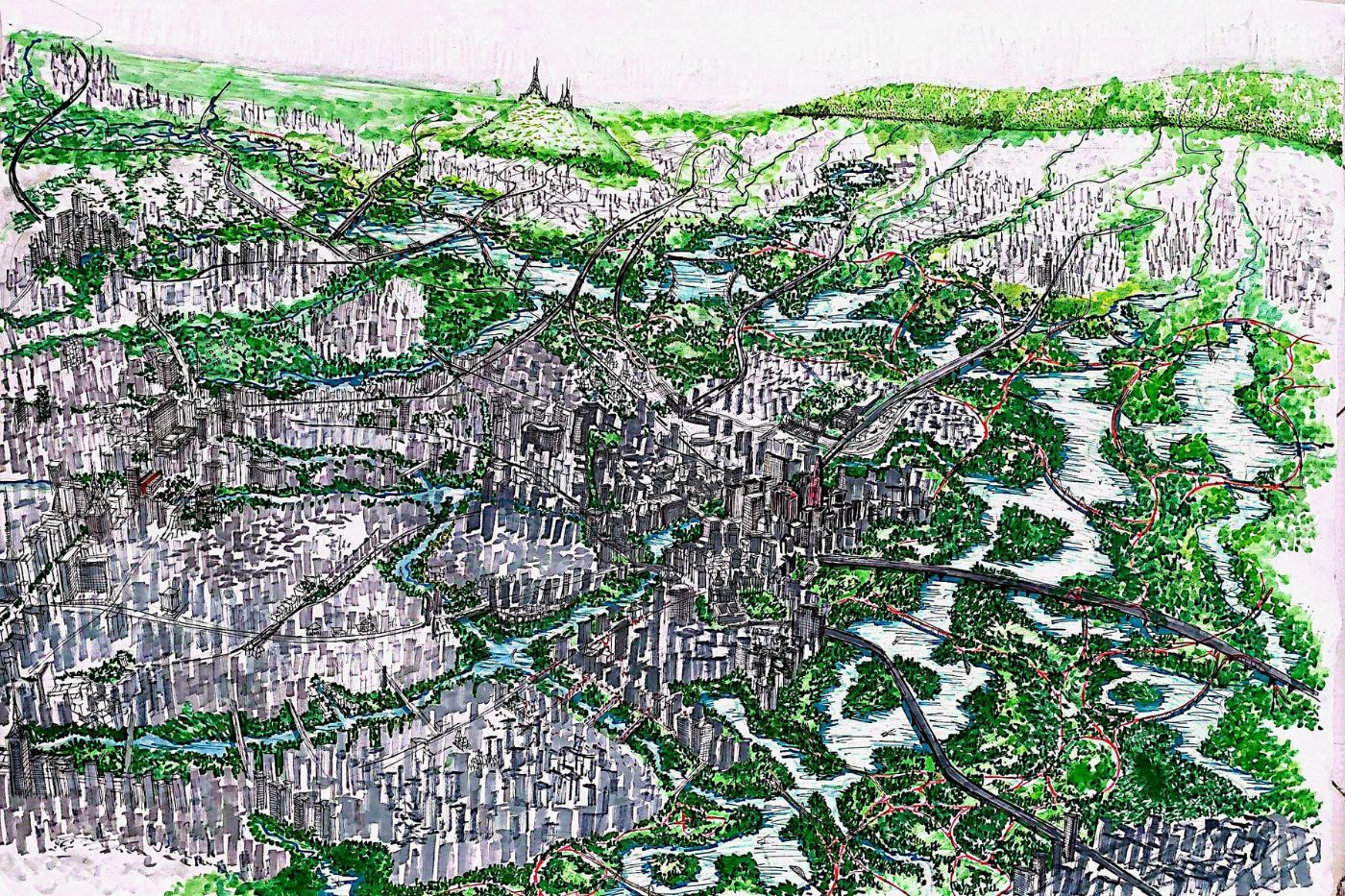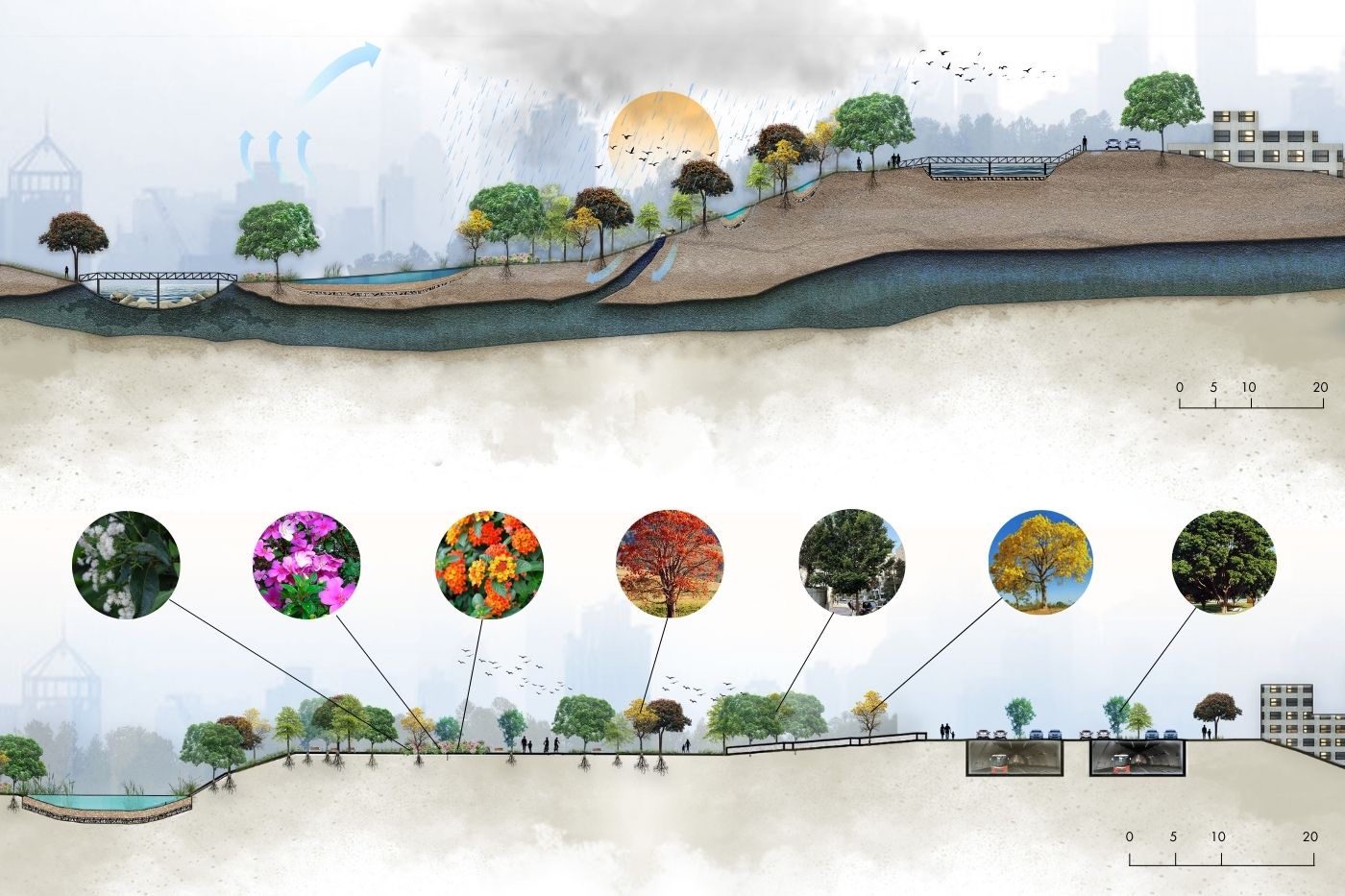Project implementation: Brazil
Project development: Brazil
Team of students from the Armando Alvares Penteado University Center (FAAP)
Reclaiming the rivers and living with the waters: healing the city of São Paulo is a project that begins with recognizing the city's origins. São Paulo was born from the rivers—Tamanduateí, Anhangabaú, and Tietê—which structured the initial settlement and were places of meeting, shelter, and exchange. With modernization, urban logic imposed itself against nature. Prestes Maia's Avenue Plan, in the 1930s, corroborated this separation by channeling waterways, waterproofing banks, and transforming rivers into drainage channels, invisible beneath the asphalt. The result is a city that today experiences the effects of its denial: recurring floods, heat islands, and environmental collapse. Our proposal stems from a radical gesture: tearing apart the city to return space to the rivers. This image is not only poetic, but strategic. It is not about returning to the past, but about recovering forgotten wisdom: nature is not an obstacle, but a path. Reclaiming water is the antidote to a "development" model that insists on suffocating the territory. The project is anchored in three symbolic and complementary locations, which serve as replicable examples for the entire metropolis: Morro Grande Park, Água Preta Stream, and the Tietê River. In these locations, we propose restoring the natural course of rivers and streams, allowing them to flow freely again. Their banks become zones of protection and coexistence, with the expansion of Permanent Preservation Areas (APPs) proportional to flood risk studies. This strategy transforms linear parks into living urban drainage systems, functioning as wetlands capable of reversing floods while simultaneously providing quality public spaces. Green infrastructure is essential. Native species rebuild riparian forests, filter water, and ensure ecological balance. Green corridors connect different areas of the city, promoting biodiversity and shade in a territory marked by excessive concrete. Thus, drainage, leisure, environmental health, and cultural memory converge in a single space. Our project stems from this collective desire: to reimagine São Paulo through its waters. By giving voice to the rivers, we give the city its breath. It's an invitation to envision a metropolis where infrastructure and ecosystem are not opposites, but allies. Tearing up the asphalt, letting the water flow, and opening greenways is more than a utopian gesture: it's a survival strategy for a hot world.




